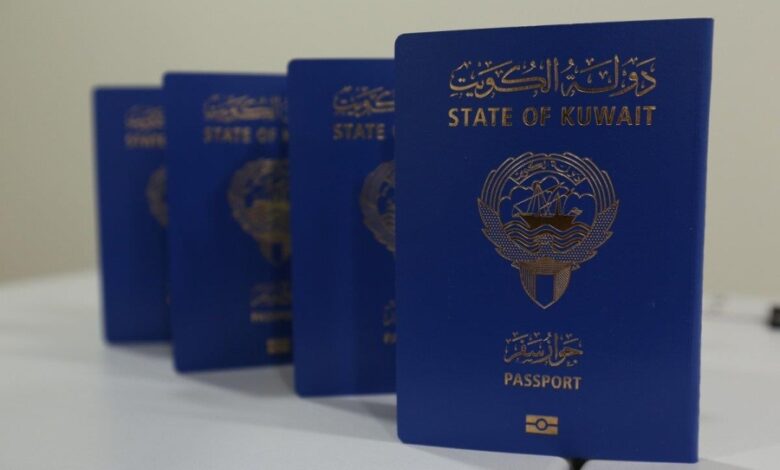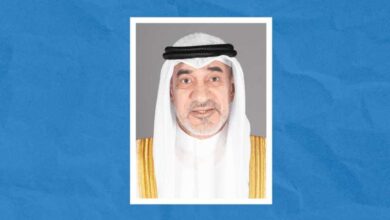Kuwait strips over 525 fake citizens in historic crackdown on nationality fraud
From forged family trees to DNA-confirmed deceptions, the Supreme Committee exposes massive fraud rings spanning Syrians, a Sri Lankan maid, and a Gulf national — marking the largest revocation campaign in the country’s history.

The Kuwaiti authorities have uncovered a series of major citizenship fraud schemes involving forged documents, false family affiliations, and fraudulent naturalizations, leading to the revocation of citizenship from more than 500 individuals over the past year.
The unprecedented crackdown, spearheaded by the Supreme Committee for Nationality Investigation, reflects Kuwait’s determined efforts to preserve the integrity of its national identity.
Case 1: 33-year deception by Sri Lankan woman exposed
One of the most unusual cases involved a Sri Lankan domestic worker, known as Costa, who faked her way into Kuwaiti citizenship in 2000 through a fabricated family narrative.
Costa first entered Kuwait in 1992, was deported, and returned under a new identity in 1996. After marrying a Kuwaiti taxi driver, she falsely claimed pregnancy and arranged for another woman to give birth using her identity — registering the child as her own and secured citizenship under Article 8 of the Nationality Law.
The deception went unnoticed for decades until 2021, when the former husband demanded a new investigation. DNA tests confirmed that neither Costa nor her supposed husband were the biological parents of the registered child. Costa’s citizenship was revoked in 2024, followed by the daughter’s in 2025, after it was verified she had no legitimate claim to Kuwaiti nationality.
Case 2: Syrian national Qassem at center of 207 revocations
A major investigation launched in July 2024 revealed 207 fraudulent citizenship cases tied to a Syrian national named Qassem. He had been illegally inserted into the file of a Kuwaiti family along with five others posing as siblings. DNA analysis confirmed their Syrian origin.
The case led to further revelations across six fake family files: Jassim file: 40 revoked; Mohammed file: 31 revoked; Ahmed file: 32 revoked; Qassem file: 16 revoked; Awad file: 23 revoked; Saleh file: 65 revoked.
The coordinated probe, carried out in partnership with Syrian authorities and Kuwait’s Central Agency for Illegal Residents (Bedoun), confirmed the fraudulent lineage of all individuals involved, leading to their citizenships being formally revoked.
Case 3: Gulf national’s forged file triggers 1,060-name investigation
In the largest single case of citizenship fraud to date, a Gulf national was found to have used forged documents to gain Kuwaiti nationality. Military intelligence flagged his suspicious status, prompting the Nationality Investigations Department to probe his file, which had swelled to 1,060 names.
Earlier phases of the investigation had already resulted in 620 revocations, followed by 440 more in a subsequent batch. In July 2025, the Supreme Committee revoked the final 75 names, officially closing this case in terms of direct action—though related investigations remain ongoing.
Case 4: Siblings Nayef and Hamoud fabricate entire Syrian lineage
Another complex fraud case involved two Syrian brothers, Nayef and Hamoud, who infiltrated Kuwaiti citizenship records and constructed fake family trees. The case began in March 2025 with the arrest of Khaled, who confessed that Nayef—listed as his father—was in fact his uncle under Syrian nationality.
Further investigations revealed that Nayef had fraudulently obtained citizenship by attaching himself to a Kuwaiti citizen’s file. He later added dozens of relatives, including his real brother Hamoud, to his fabricated family tree. DNA testing confirmed that neither Nayef nor Hamoud had legitimate ties to the Kuwaiti family, and all connections were forged.
In total, 108 individuals had their citizenships revoked — 53 linked to Nayef and 55 linked to Hamoud, including Khaled, who had been stripped of citizenship earlier.
The authorities emphasized a “zero tolerance” policy and committed to thoroughly dismantling any family, marriage, or kinship file found to be built on fraudulent grounds.
With the combined cases of Costa (2), Qassem and associates (207), the Gulf national case (1,060 individuals with 1,060 names under review and 1,060 stripped so far), and the Nayef-Hamoud network (108), Kuwait has now revoked over 525 confirmed individual citizenships in less than a year — individuals pending verification in the larger 1,060-name file.
Officials have reiterated that all cases of fraud—regardless of when they occurred—will be thoroughly investigated, with perpetrators and beneficiaries held accountable. The use of DNA evidence, cross-agency verification, and international coordination are now standard protocol in nationality investigations.
The Supreme Committee is expected to propose legislative reforms and technology upgrades to prevent future abuses and reinforce the credibility of Kuwait’s citizenship records.












